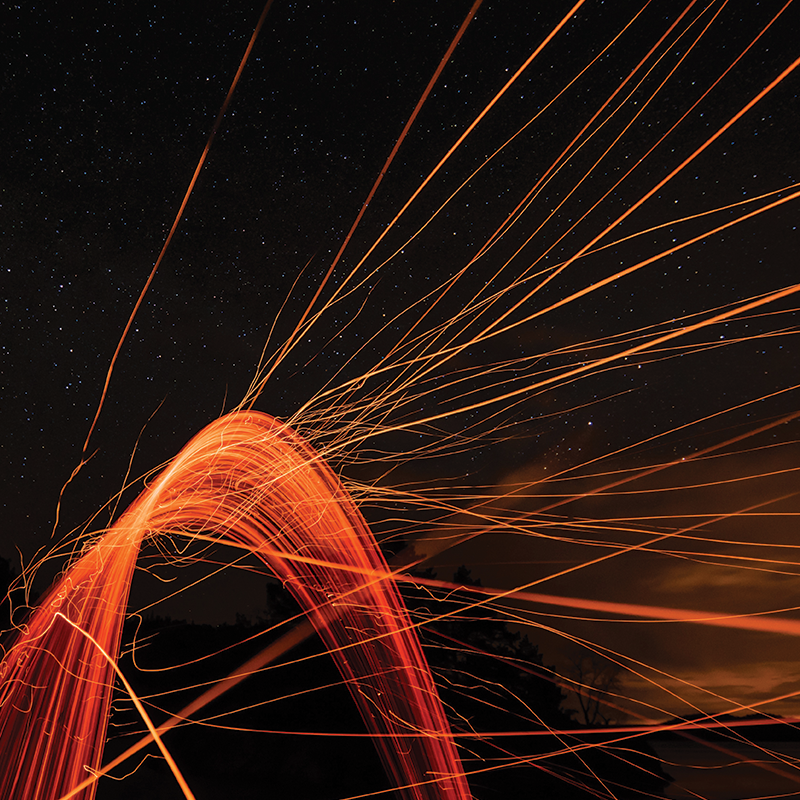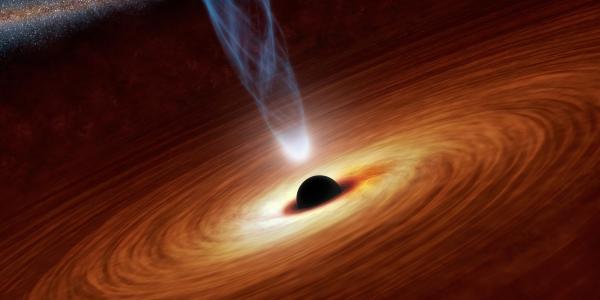https://physics.wustl.edu/xml/faculty_staff/12260/rss.xml
Professor Ferrer studies the composition and evolution of the universe and the implications for cosmology of models of particle physics beyond the Standard Model of the strong, weak and electromagnetic interactions.
Ferrer focuses on the observable consequences of particle physics candidates for the dark matter composing galactic halos. He also studies the nature of the other main contributor to the energy budget of the universe, dark energy, in modifications to Einstein's theory of gravity such as string gas cosmology.
A wide variety of elementary particle physics models predict the presence of topological defects that would have formed during phase transitions in the early universe. Ferrer is interested in these nontrivial field configurations both from the point of view of theoretical quantum field theory and for the potential role that they could play in cosmology and astrophysics. For instance, a network of superconducting cosmic strings in the Milky Way plasma could be at the origin of the 511 keV line emission from the galactic center mapped by the INTEGRAL satellite. Also, the cosmic magnetic fields could have been created by non-perturbative processes in several stages of the evolution of the universe.
Ferrer also studies the origin of the cosmic rays with energies exceeding the threshold for photomeson production on the cosmic microwave background and has been a collaborator of the Pierre Auger Observatory. He searches for signatures in the energy and angular distribution of the events that can help in determining the sources for the highest energy cosmic rays.
Honors and Awards
| 2001-2003 | Marie Curie Fellowship of the European Commission |
| 1999 | Jordi Porta i Jué Award of the Catalan Physics Society |
recent courses
Introduction to Astrophysics (Physics 312)
This course covers the physics needed for higher level astrophysics courses, and is a requirement for those courses. Furthermore, it gives a first introduction to several topics in modern astrophysics, including stars (stellar structure and evolution), compact objects (neutron stars and black holes), galaxies (galactic structure), and cosmology. The course should be taken by everybody interested in astrophysics.
From Black Holes to the Big Bang (Physics 478)
An introduction to general relativity. The goal will be to illustrate important features of general relativity without the full-blown mathematics of Einstein's equations by restricting attention to spherically symmetric spacetimes. Topics will include: principle of equivalence; curved spacetime; spherical stars and black holes; the Big Bang model, observational cosmology.
Computational Methods (Physics 584)
This course provides an introduction to the computational techniques that are most widely used in both theoretical and experimental research in physics. Each lecture will use a realistic research problem to introduce the algorithms, software packages and numerical techniques that will be used by the students to develop a solution on the computer. Topics include Monte Carlo techniques, symbolic analysis with Mathematica, data acquisition software used in the laboratory, the numerical solution of quantum mechanical problems, and an introduction to general purpose frameworks based on Python.
Physics I (Physics 191)
Calculus-based introduction to the concepts, laws, and structure of physics. Topics include kinematics, Newton's laws, energy, linear momentum, angular momentum, the conservation laws, gravitational force, harmonic motion, wave motion and interference, sound, and special relativity.



